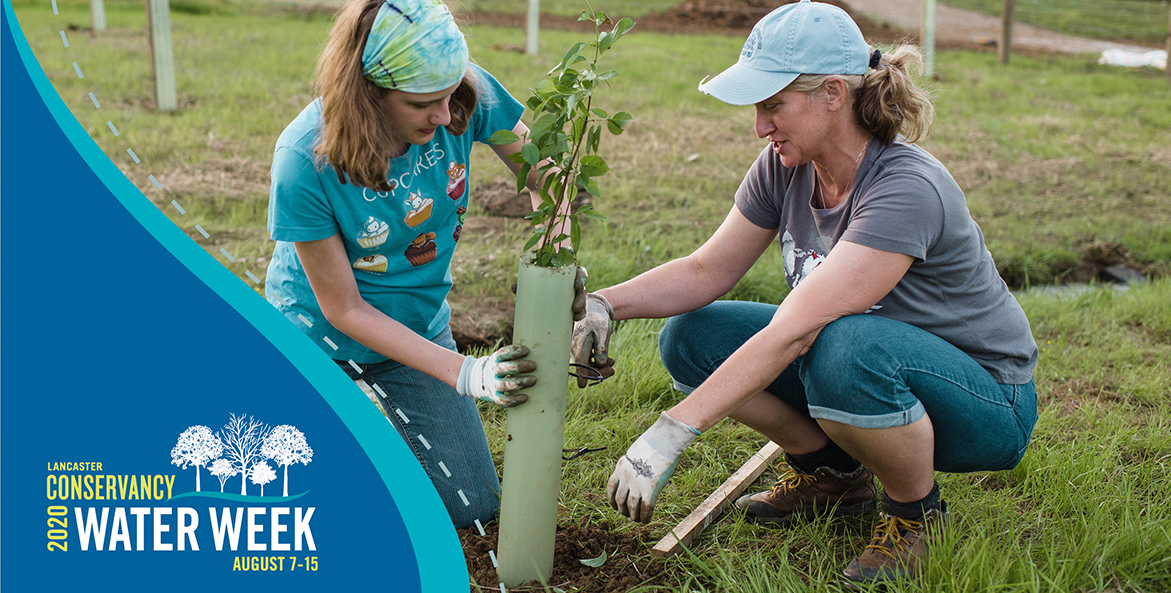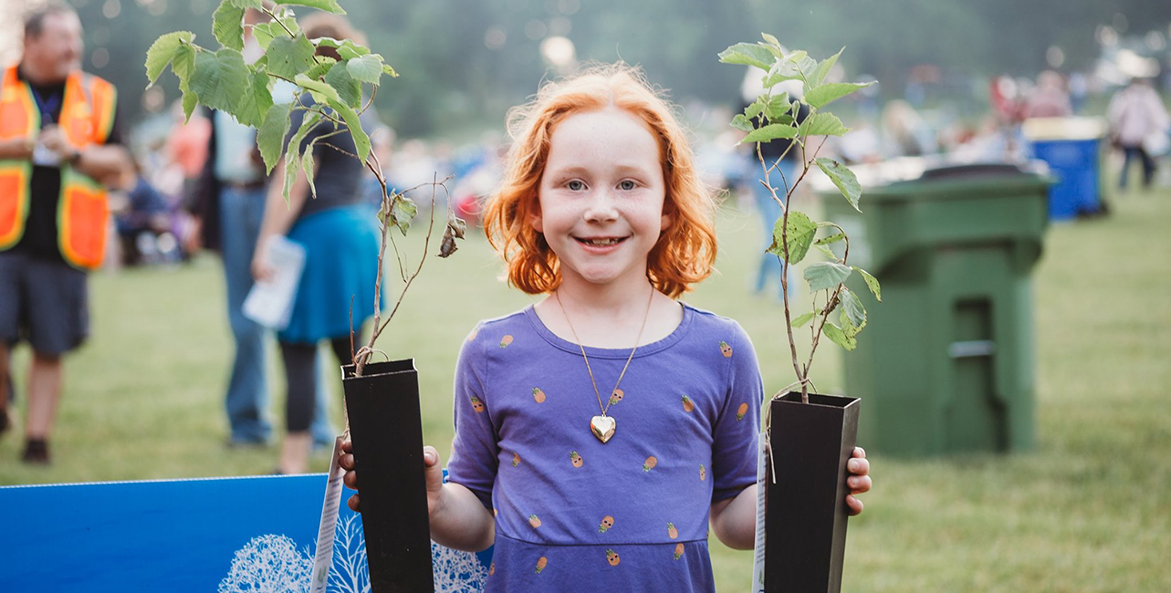From August 7-15, join us in celebrating the fourth annual Lancaster Water Week! Lancaster Conservancy’s yearly event is slightly different this year, but it’s still an important week for the residents of Lancaster County, Pennsylvania, to celebrate, restore, and protect local waters all while taking action in their own backyards.
CBF and the CBF coordinated Keystone 10 Million Trees Partnership, are proud to be sponsors of Lancaster Water Week again this year. “Lancaster Conservancy has a really good network within Lancaster County and has built a solid reputation for conserving land and working to preserve and conserve our resources,” partnership manager Brenda Sieglitz says.
“Our number one action step is to create habitat–plant native trees, shrubs, and flowers to capture rainwater,” says Fritz Schroeder, Senior Vice President of Community Impact for the Lancaster Conservancy. “Native trees and shrubs play a huge role in keeping our streams and rivers healthy. They prevent runoff, protect the quality of our water, provide habitat for wildlife, and so much more.”
Conservation work, like planting native trees and shrubs and reducing polluted runoff in Lancaster County is key to the success of Pennsylvania’s Clean Water Blueprint to the restore and protect Commonwealth waters and the Chesapeake Bay downstream.
“There are 1,400 miles of streams and rivers in Lancaster County and nearly half of them are polluted,” Schroeder says. “These waterways drive local economic and agricultural growth, are great places for recreation, and they are the source of our drinking water.”
Unfortunately due to the COVIS-19 pandemic, many of the activities for this year’s community clean water festival will take place online—but they’re still so much to learn and do!

Lancaster Water Week normally offers lots of hands-on activities, but unfortunately due to COVID-19 restrictions, those have been scaled back and supplemented with virtual events. Photo from 2019 Lancaster Water Week.
Lancaster Water Week
New this year is a free Water Week Pledge kit that encourages participants to take three action steps: create habitat, protect water, and explore outdoors. The action steps include planting native trees, shrubs, and flowers to capture rainwater and benefit wildlife; picking up litter and reduce polluted runoff; and spending time in nature to appreciate its impact on physical and mental wellbeing.
Pledge kits will contain a Lancaster Water Week reusable tote bag, a Lancaster Conservancy sticker, resources to help participants achieve each of the three action steps, and a native tree or shrub, provided by Octoraro Native Plant Nursery through the Keystone 10 Million Trees Partnership.
“We want people to see that conservation can begin right at home and they don’t have to go far at all, especially in Lancaster County, to experience the natural beauty, the preservation and conservation that is taking place,” says Sieglitz. “There are many things they can do at home to make a difference in the environmental quality of Lancaster County.”
Lancaster Water Week also includes free online lectures, including a class on rain garden design, a discussion about the Turkey Hill Clean Water Partnership, and a look at the hidden world of stream insects or the history of the Conestoga.
Not interested in online courses? There will also be self-guided adventures to learn about green infrastructure or a restored trout stream, and several small outdoor events will also be offered, including family friendly activities at Climbers Run Nature Preserve, Kellys Run Nature Preserve, Lititz Run, Chiques Creek, and the City of Lancaster.
An event at Roger Rohrer’s farm at 22 Girvin Road, Lancaster, on August 8, will demonstrate farming systems that reduce pollution, restore stream ecosystems, enhance wildlife, and sequester carbon. Attendance at in-person Lancaster Water Week activities requires registration, social distancing, and wearing of masks.
Participants can sign up to pick up Pledge kits, register for events, and get detailed information on Lancaster Conservancy’s Lancaster Water Week site.
Note: All photos featured in this blog are from Lancaster Water Week events before the COVID-19 pandemic. If you are participating this year, please follow health guidelines to keep you and your loved ones safe.




